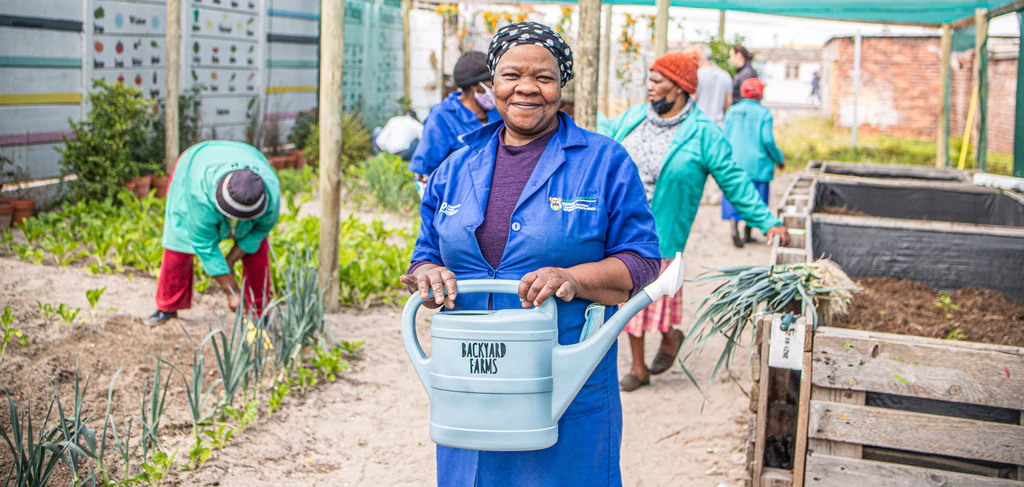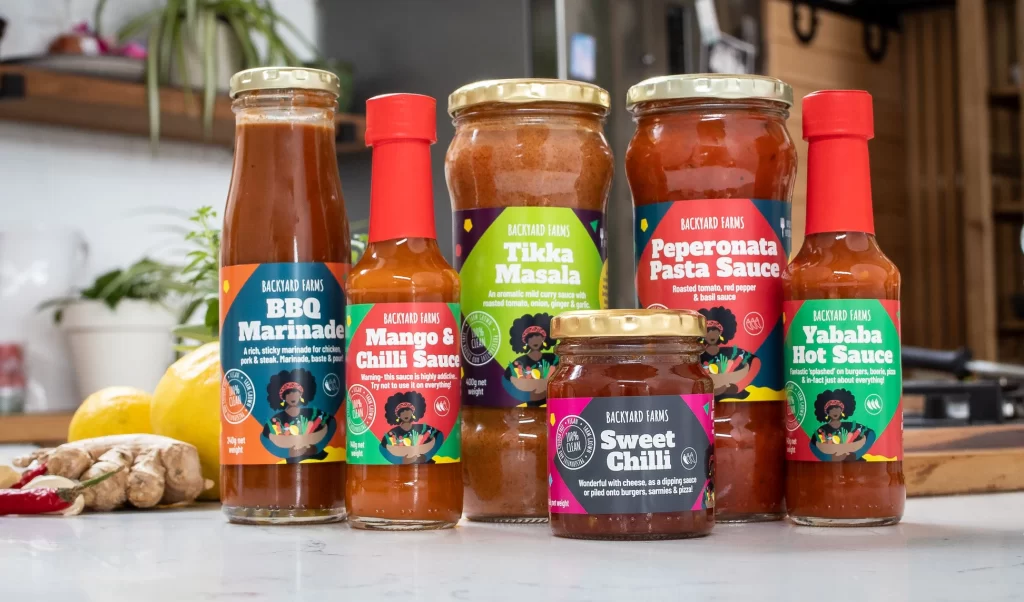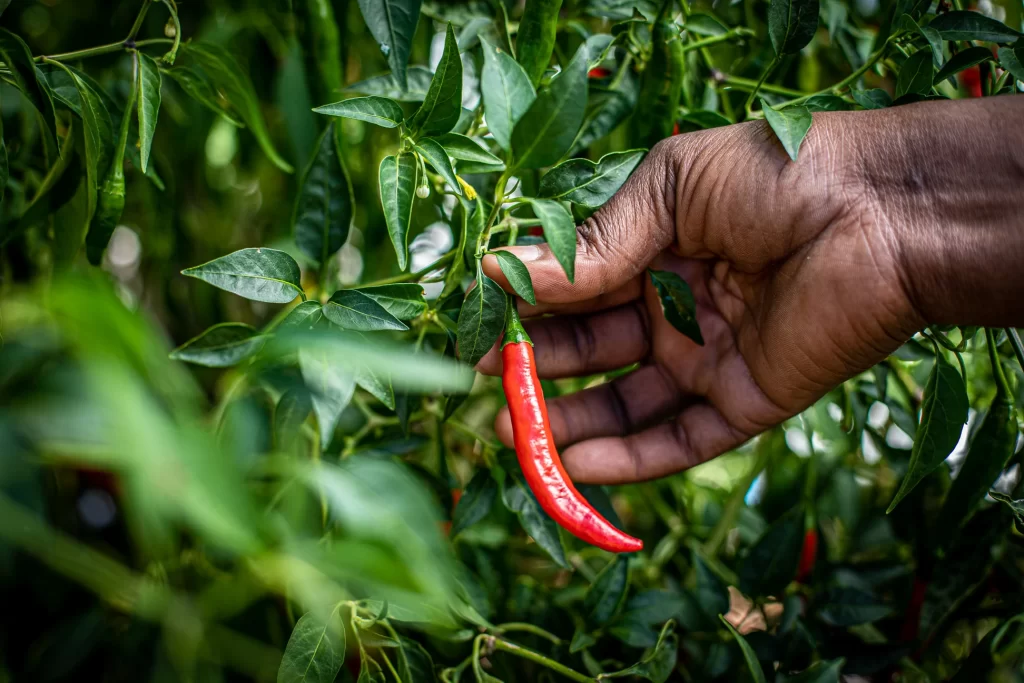Something good came out of the global lockdown: Backyard Farms, a new social enterprise that has created a network of micro-farmers, entrepreneurs, and a fabulous sauce!
At The Small Business Showcase we share epic stories about small South African businesses doing incredible things, and this one makes us hot under the collar with their story and sauce.
Lockdown turned up the heat
At the start of 2020, the founder of Backyard Farms, Dominic Johnson Allen, was involved in an extensive emergency feeding project in the Western Cape. While working with the women responsible for distributing meals into communities he realised hand-outs are not the answer to the problem.
“As I built a relationship with these women, I was conscious that our kind of crisis-feeding scheme was going to come to an end and I wouldn’t be able to help them any longer”
Dominic Johnson-Allen, Backyard Farms Founder
Turns out, some of the women involved in the feeding programme are skilled in home-based farming. Love to Give, a charity based in Stellenbosch, taught these women to grow their own food to supplement their diets. Dominic became aware of unused backyards in the community, put two and two together, and came up with the hot idea of micro-farming.
So what’s the big idea?

A hot and fruitful idea
These women will grow and harvest crops in their backyards, to be sold. This is a business after all and money doesn’t grow on chilli trees – or does it?
In fact, chillies don’t need much water, they love the sun and they grow quickly.
So, Backyard Farms will buy the chillies, make a sauce and sell it for extra cash which goes back to the micro-farmers.
Several months later, Backyard Farms now has a network of 30 micro-farms, in backyards and community gardens including crèches and early childhood development centres.
A sauce of income
Starting with 10 micro-farms, the women growing the crops were provided with fertiliser, soil, plants, and often watering cans and trowels too. What more could they need?
After two micro-farmers dropped out, Backyard Farms recognised specific types of women that were best suited to the programme. They also realised they needed to spice things up and grow more than just chillies. Having more diverse crops will give the business a greater chance of growing year-round while providing a steady income for the micro-farmers.
A red hot industry
There are a lot of sauces on the market. In fact, every second person and their mother makes a sauce they want to sell, so what makes this one different?
EFFORT.

The chilli paste is made with a combination of smoked, dried and fresh chillies soaked in rooibos tea. All the aromatics are roasted for depth of flavour and the BBQ sauce is 25% concentrated plums. All ingredients are sourced locally, because local is lekker, and at least one ingredient is sourced from Backyard Farms. It also has a completely clean label – no preservatives, thickeners or colourants – and (if anyone cares) it’s vegetarian-friendly.
Not only is Backyard Farms growing the chillies for the sauces, but they’re also supplying Pebbles Kitchen with all their vegetables. Pebbles Kitchen produces 5000 meals daily, which are distributed to children in the communities of the Western Cape farming regions. This increases the earning potential for the micro-farmers, as Pebbles Kitchen will now buy anything they can grow.
“I wanted to create little entrepreneurs out of our partners.”
Dominic
Less chill, more chilli; a bright future ahead

Backyard Farms has created businesswomen in their own right. With its range of products sold in 27 retailers to date and recently 10 Wellness Warehouses, it is an expanding business destined to improve the lives of many.
Want to add some spice to your life? Visit Backyard Farms website. www.backyardfarms.co.za
P.S. Love the story and want to get involved? If you are, or know, a small business owner share this Small Business Showcase article with anyone and everyone.
Search Businesses
Eligendi optio cumque nihil impedit quo minus id quod maxime.